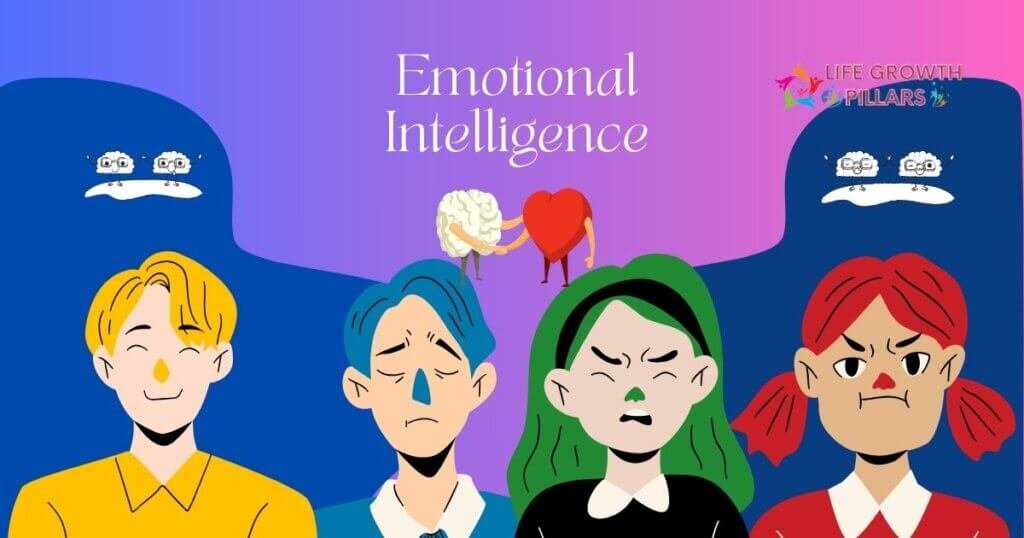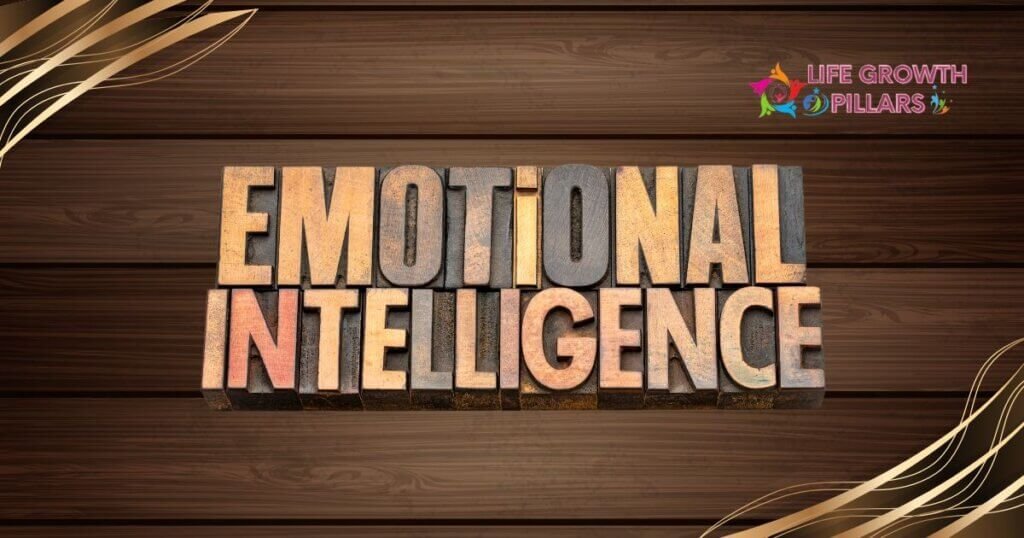Mastering Emotional Intelligence For Self-Awareness
In today’s fast-paced world, where success is often equated with professional achievements, mastering emotional intelligence has become more crucial than ever. This article delves into the significance of emotional intelligence for self-awareness, offering insights and practical tips on how individuals can enhance this vital skill to navigate life’s challenges more effectively.

Benefits Of Mastering Emotional Intelligence
Embracing and mastering emotional intelligence yields a myriad of benefits that extend beyond personal growth. Let’s explore the positive impacts on self-awareness, interpersonal relationships, and professional success.
Understanding Emotional Intelligence
Before we delve into the mastery of emotional intelligence, it’s essential to grasp its fundamental concept. Emotional intelligence refers to the ability to recognize, understand, manage, and effectively use one’s own emotions, as well as the ability to navigate and influence the emotions of others. It encompasses self-awareness, self-regulation, empathy, and interpersonal skills.
The Power Of Self-Awareness
Unveiling Your Emotions
Self-awareness is the cornerstone of emotional intelligence It’s about tuning into our emotional landscape, deciphering their meaning, and owning them confidently. By being attuned to our feelings, we can make better decisions and respond more appropriately to various situations. Mastering emotional intelligence goes beyond mere recognition of emotions; it involves a continual process of self-discovery. As individuals delve into the nuances of their feelings, they gain insights into their motivations, values, and triggers. This expanded self-awareness provides a solid foundation for personal development, empowering individuals to make informed decisions aligned with their authentic selves.
Embracing Vulnerability
Being open and honest about our emotions, even when they are challenging, fosters a sense of vulnerability. Embracing vulnerability allows us to connect more authentically with ourselves and others, ultimately contributing to heightened emotional intelligence.
Nurturing Authentic Relationships
Building on the concept of vulnerability, mastering emotional intelligence fosters authentic relationships. When individuals authentically express their emotions and embrace vulnerability, they create a space for genuine connections with others. These connections are not only deeper but also more fulfilling, contributing to a support system that enhances emotional well-being.
Enhancing Conflict Resolution Skills
Effective conflict resolution is a vital component of emotional intelligence. Individuals who master emotional intelligence are adept at navigating conflicts with empathy and understanding. They approach disagreements as opportunities for growth, seeking common ground and mutually beneficial solutions. This skill not only contributes to harmonious personal relationships but also makes a significant impact in professional settings.
Leveraging Emotional Intelligence In Leadership
Leaders who master emotional intelligence stand out in their ability to inspire and motivate teams. By understanding the emotional landscape of their team members, leaders can tailor their approach to each individual, creating a positive work environment. This emotional acumen fosters collaboration, innovation, and a sense of unity within the team, ultimately driving success.

Adapting To Change With Emotional Resilience
Building on the importance of emotional resilience, mastering emotional intelligence enables individuals to adapt to change with grace and fortitude. The ability to view challenges as opportunities for growth becomes a guiding principle. This mindset not only facilitates personal development but also positions individuals as resilient leaders capable of steering through uncertainties in both personal and professional spheres.
Developing Emotional Resilience
Navigating Life’s Ups And Downs
Life is full of ups and downs, and emotional resilience is the key to bouncing back from setbacks. Mastering emotional intelligence involves developing resilience, which enables individuals to adapt to change, manage stress, and maintain a positive outlook, even in challenging times.
Cultivating A Growth Mindset
A growth mindset, the belief that abilities and intelligence can be developed through dedication and hard work, plays a pivotal role in emotional resilience. By cultivating this mindset, individuals can view challenges as opportunities for growth, enhancing their emotional intelligence in the process.
Strengthening Interpersonal Relationships
Empathy In Action
Empathy, the ability to understand and share the feelings of others, is a cornerstone of strong interpersonal relationships. Mastering emotional intelligence involves putting empathy into action, fostering deeper connections and building a supportive network.
Effective Communication
Communication is an essential aspect of emotional intelligence. Mastering emotional intelligence means honing effective communication skills, including active listening, expressing oneself clearly, and resolving conflicts in a constructive manner.
The Impact On Professional Success
Leadership And Emotional Intelligence
In the professional sphere, emotional intelligence is particularly crucial for effective leadership. Leaders who master emotional intelligence can inspire and motivate their teams, fostering a positive work environment that contributes to overall success.
Conflict Resolution In The Workplace
Conflict is inevitable in any workplace, but individuals with high emotional intelligence excel in resolving disputes. By understanding and managing emotions, they navigate conflicts with tact and diplomacy, creating a harmonious work atmosphere.
Conclusion
Mastering emotional intelligence is a journey toward self-awareness and personal growth. By understanding and managing emotions effectively, individuals can navigate life’s challenges with resilience, build strong interpersonal relationships, and achieve professional success. Embracing emotional intelligence is not just a skill; it’s a mindset that empowers individuals to lead fulfilling and meaningful lives. Start your journey today, and unlock the true potential of mastering emotional intelligence for self-awareness.

Frequently Asked Questions
Q1. What exactly is emotional intelligence?
A. Emotional intelligence refers to the ability to recognize, understand, and manage our own emotions and navigate the emotions of others effectively. It encompasses self-awareness, self-regulation, empathy, and interpersonal skills.
Q2. How does self-awareness contribute to mastering emotional intelligence?
A. Self-awareness is the foundation of emotional intelligence. It involves recognizing and understanding our own emotions, fostering better decision-making, and enabling more appropriate responses to various situations.
Q3. Why is vulnerability emphasized in the context of emotional intelligence?
A. Embracing vulnerability fosters authentic connections with ourselves and others. It encourages openness about challenging emotions, contributing to heightened emotional intelligence and deeper relationships.
Q4. Can emotional resilience be developed, and how does it relate to mastering emotional intelligence?
A. Yes, emotional resilience can be developed. It involves bouncing back from setbacks, adapting to change, and maintaining a positive outlook. Mastering emotional intelligence includes cultivating resilience to navigate life’s challenges more effectively.
Q5. How does empathy play a role in interpersonal relationships and emotional intelligence?
A. Empathy, the ability to understand and share others’ feelings, is crucial for building strong interpersonal relationships. Mastering emotional intelligence involves actively practicing empathy, fostering deeper connections and understanding.
Q6. In what ways does emotional intelligence impact professional success?
A. Emotional intelligence plays a pivotal role in professional success. Leaders who master emotional intelligence inspire and motivate teams, navigate conflicts with diplomacy, and create positive work environments conducive to overall success.
Final Thoughts
Mastering emotional intelligence is an ongoing journey, and the benefits extend far beyond the surface. It’s a dynamic process of self-discovery, relationship-building, and professional growth. As individuals delve deeper into the intricacies of their emotions and apply these insights in various aspects of life, the impact is profound. The transformative power of emotional intelligence lies in its ability to shape individuals into resilient, empathetic leaders who navigate the complexities of life with authenticity and purpose. Begin your journey today, and experience the continuous evolution that comes with mastering emotional intelligence.

